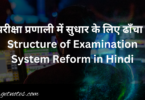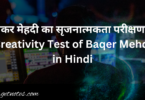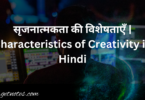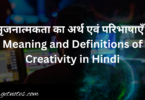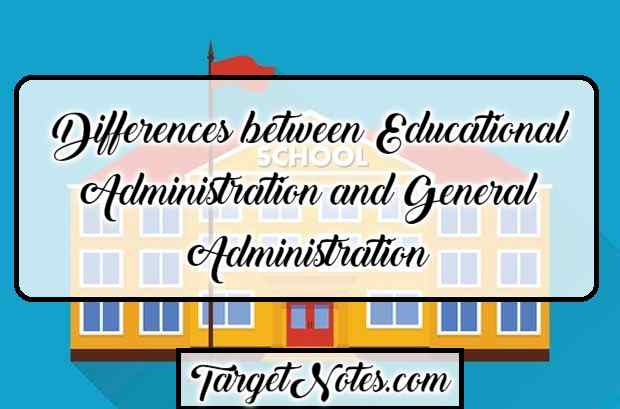
Differences between Educational Administration and General Administration
Some people argue that all administration is the same, whether one looks at administration from the standpoint of its purpose, it’s task, it’s situational milieu or its process, we will find much that i common in the management of business, government, army, education and other organisations.
People who find no significant difference between the two say that human behavior, cult of efficiency and bureaucracy are common to all administrations. Educational administration includes most of the general administrative functions such as appraisal of the organisational purposes and coordination of all the forces—staffing, training, public relations, community service, raising funds for institutions, maintenance of accounts and a score of other things to achieve the objective. On this account they say that educational administration very well fits into the pattern of administration in general.
1. Education is a “non-profit making enterprise.” It is chiefly welfare or service-oriented. The purpose of an industrial administration is to produce goods, of course, to meet the needs of the people but their motive is to make profits. No worthwhile business administration can run even on “no profit, no loss” basis whereas any educational administration worth the name aims at the development of human personality without caring for the monetary losses. In fact, educational enterprise is a “welfare enterprise” first and last and more often than not runs in financial losses which are met by donations, public contribution or by levies or taxes etc.
2. Education deals with people directly and intimately. The most intimate relationship the school/college has is with children and youth. The pupils represent the dearest possessions of their parents and these parents, by and large, are greatly concerned with how the school and college is treating their offspring. In other words, the school/college is confronted with the emotional attachment of parents to their children and these attachments are much stronger than those which most parents have for other public or private services.” The educational administrator is thus concerned with a group of clients who may not be his by choice, but without whose cooperation, the institution he is responsible for, cannot function properly.
3. Another special feature of the educational enterprise is the nature of the learning process. Learning is a complicated affair. It comes more from informal situations than from the classroom lessons. Much informal education goes on without anybody’s intending to learn-simply as a process of social interaction. Much of what a student learns is learnt as a consequence of social interaction among students. Thus learning is preceded by a number of factors. It does not merely mean acquiring some knowledge or understanding but it may provoke many emotional commitments. Shaheed-e-Azam Bhagat Singh who shook the foundations of the British Empire, Subash Chandra Bose who gave up the heaven born Indian Civil Service an Lala Lajpat Rai, the “Lion of the Punjab” achieved more than learning in their school and college days.
The channels of contact and communication have to be always kept open and free with the teachers, the students and their parents. The educational administrator has to be highly visible and accessible to the public in general too as the educational institutions are public enterprises.
4. The main concern of educational administration being people and their welfare, the techniques of educational administration are mostly persuasive while those in other kinds of administrations ar mostly coercive, dictatorial and authoritative. An educational administrator has to look to the interaction of the persons involved, whereas in other types of administration one can afford to ignore the reactions of the persons affected by his decisions – though sometimes he loo has to pay through the nose for the neglect
5. Peculiarities of educational administration arise from the objectives of education in our society. Education is closely linked to life. It needs to be transformed into a powerful instrument of social change. National development can be brought about only through universal education. Even the survival of a democratic society is possible through education. “Destiny of India is now being shaped in her classrooms”. This, we believe, is no mere rhetoric. In a world based on science and technology, it is education that determines the level of prosperity, welfare and security of the people. On the quality and number of persons coming out of our schools and colleges will depend our success in the great enterprise of our national reconstruction; whose principal objective is to raise the standard of living of our people.” Indian Education Commission (1964-66).
6. Evaluation of results in education is another area which pose special problems to educational administrators. In business, one can use sales or production or the profits as evaluative measures. In the military, objectives are definite and it is not difficult to assess whether these goals have been achieved or not. Likewise the targets of the down architects and dam builders can be measured to a large extent as these are more or less concrete. But it is not so in the case of educational objectives and targets. The purpose of all education at all levels varies from literacy to critical thinking, intellectual leisure and facilitation of social mobility,” Literacy could of course be taken as something tangible, i.e. reading, writing and numeration, but critical thinking, intellectual leisure or facilitation of social mobility may almost mean anything to any body. To say, therefore, about any institution as to how far these abstract goals have been achieved is difficult if not impossible. People may disagree even on their interpretations.
7. We often find that governing bodies or the boards of control of educational institutes know very little about the complexities of learning and teaching. The unfortunate part of the whole situation is that they sit in judgment on the educational programmes they do no fully understand. But this thing seldom happens in other organisations The manager of a firm or a factory works for a board most of whom are thoroughly familiar with the factory affairs, its organisation and objectives.
8. Good educational institutions free men to rise to the level of their natural abilities. Hope for personal advancement and th advancement of one’s children is, of course, one of the great well- springs of human energy. The schools and colleges only sustain this hope. Public education is an inbuilt corrective of our society. Only through general public education can we succeed as the largest democracy of the world. The educational administrators have, therefore, a special responsibility.
- Difference between School Administration and Educational Administration
- General Administration and Educational Administration
- Nature of Educational Administration
- Scope of School Administration
- Definitions of Educational Administration by Different Scholars
- Definitions of Educational Administration by Different Scholars
- Meaning of Educational Administration
- Principles of School Organisation and Administration
- Aims and Objectives of School Organisation
- School Organisation | Meaning of School Organisation | Meaning of School |Meaning of Organisation
Disclaimer



